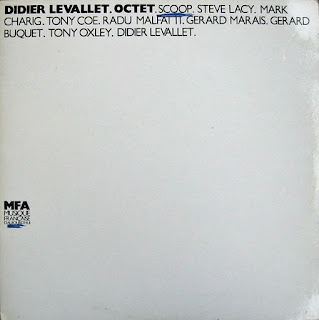This was requested long ago and in fact bought long ago as well, I just didn't have the time to sit and record it, as compensation I'll post the traditional lossless 'limited time only' (specifically 1 week).
Note that this very talented jazz guitarist called Martin Winch has appeared in the very well-known (?) New Zealand progressive fusion one-off masterpiece / group Dr. Tree which I thought I posted before but didn't, perhaps in pnf days, at any rate I'll add it at the bottom along with more from Martin. For the most part you can see in the discography that he played straight up jazz. From his playing and composition here on this record it's clear he had a very deep classical education which presumably served him well in both Dr. Tree and Sahara, less so in the 1860 Band (1978). For example the track called Scorpion features a renaissance-era fugue pattern created an oddly comical effect. For that title I would've thought an insane amalgam of atonal and high-energy guitar along the lines of Alpha Omega would've suited the zoological subject better.
Anyways, on this LP from 1984 he composes, arranges, plays, etc. It's a bit late in the fusion game but still plays really nicely all the way to the end. Although there is quite a bit of the inevitable compromise with musical tastes of the day, witness the Boogie Blues and the very light fuzak styles that appear here and there throughout on some tracks. On the other hand on the amazing Boatsheds, note how the minor second dissonance in the guitar riff (I often refer to it as the "Asia Minor" arpeggiated riff, though I think Mahavishnu John McLaughlin first used it in fusion) is given a more spooky atmosphere with the use of augmented fifths in the chord background:
I think some might not like the addition of full instrumentation (orchestra, strings, horn section) but I like it a lot as it adds colour to the instrumentals notably evoking the effect of an electric guitar concerto in places. Some could call it muzak, on the other hand.
Poking around for more to find in his discography, note that he seems to have relapsed into straight jazz following this excursion.
I added a lossless for the great Dr. Tree record too. The three albums from Martin on this post are Dr. Tree, 1860 Band, and Sahara.
Thanks again for the recommendation, whoever that was!
Today we'll all enjoy the suggestion.
Tomorrow another one (hopefully).


























































